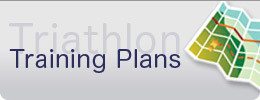Training for triathlon takes commitment and a lot of time. Professionals spend 20 to 30 hours, sometimes even up to 40 hours, per week swimming, riding, running and doing strength training. A dedicated age grouper may spend 10 to 15 hours a week while holding down a full time job and potentially a family with children.
Finding the time to fit in workouts requires waking up before it’s even close to sunrise, using your lunch hour to run or swim instead of relax and return home only to grind away the evening on the trainer in the garage. It is not uncommon for family time, social life, and other events to be compromised, especially in the months leading up to the big race. Add injuries, burnout, fatigue and work obligations into the mix and your ideal training plan can become muddled.
You may find yourself asking:
- Will skipping a workout ruin my race?
- Will completing a given workout harm my marriage or career?
- Should I push ever onwards or take time off?
- How do I know when to stick to the training plan and when I should relax and take my foot off the gas for a minute?
Here are suggestions to consider for deciding what to do about injuries, illness, fatigue and other life obligations.
Injuries
All three sports (running, riding, and swimming) can cause injuries. Many injuries become nothing more than a nagging “niggle,” and go away on their own or with a bit of stretching. Others persist and become worse. At this point, you need to stop doing the activity that is causing the pain, identify the potential cause of the injury with the aid of a physical therapist or specialized sports doctor and listen to their recommendations. This may include taking weeks or months (or longer) off from training.
Illness
Listen to your body and, with enough time, you will begin to learn the signs of sickness that are warning you to take a few rest days.
A sore throat should not be ignored. The “above the neck” ideology (you’re fine to train so long as all of your symptoms are at or above your neck, such as a sore throat, stuffy nose, and headache) should not necessarily be followed if you recognize a pattern—training with a sore throat leads to a cough, and training with a cough leads to a chronic cough (also called bronchitis).
If in doubt, take the day off and see how you feel tomorrow. Because missing one day and being cautious is fine. Missing two weeks because you pushed through is not.
Fatigue
Fatigue is a necessity in order for your body to make adaptations.
Too much fatigue, though, can lead to sickness, loss of interest in the sport, depression, and other health and emotional problems. If you are consistently dreading your workouts and never looking forward to them for weeks on end, you may have pushed through too many days. Take a rest week (or two) and come back focused, refreshed, and itching to nail it once again.
Social Life, Family Life and Work Obligations
These non-training aspects of life are sometimes the hardest to manage, because even while your body is fine to train, your mind and those around you may require something other than intervals and gym time.
Remember why you do triathlon—for the thrill, challenge, health reasons, and good feelings that come with completing hard workouts and achieving your race goals. These can lead to happiness. Happiness, for yourself and your loved ones, should be at the top of your goals in life.
Always. If triathlon helps you be happy, do it. If training long hours through a weekend, which should have been spent with your children because of a special family event, will cause you and the people around you to be less happy in the long run, maybe your training plan can be put on pause. If you need another reason to rationalize taking time away from training for your family, work, or friends, remember that you can only perform at your highest potential when you are at your best.
Happy training!
David
P.S. Need a purposeful training plan that takes the guesswork out of your training and gives you structure to reduce risk of overtraining and injury? Check out our training plans for triathlons from sprint to IRONMAN® and running races from 5k to marathon.
—
 Coach David Glover, MS, CSCS has completed 28 IRONMAN distance triathlons, which includes two sub 9 hour finishes and winning Vineman Full twice. Now, David’s passion now is helping triathlete and other endurance athletes achieve their dreams through his online triathlon education and training company, ENDURANCEWORKS. David has an MS in Exercise Physiology and is certified as a coach by IRONMAN Triathlon, USA Triathlon and USA Cycling plus has his CSCS from NSCA. After six years of living, training and coaching in the triathlon mecca of Boulder, CO, David currently resides in Southern California.
Coach David Glover, MS, CSCS has completed 28 IRONMAN distance triathlons, which includes two sub 9 hour finishes and winning Vineman Full twice. Now, David’s passion now is helping triathlete and other endurance athletes achieve their dreams through his online triathlon education and training company, ENDURANCEWORKS. David has an MS in Exercise Physiology and is certified as a coach by IRONMAN Triathlon, USA Triathlon and USA Cycling plus has his CSCS from NSCA. After six years of living, training and coaching in the triathlon mecca of Boulder, CO, David currently resides in Southern California.


